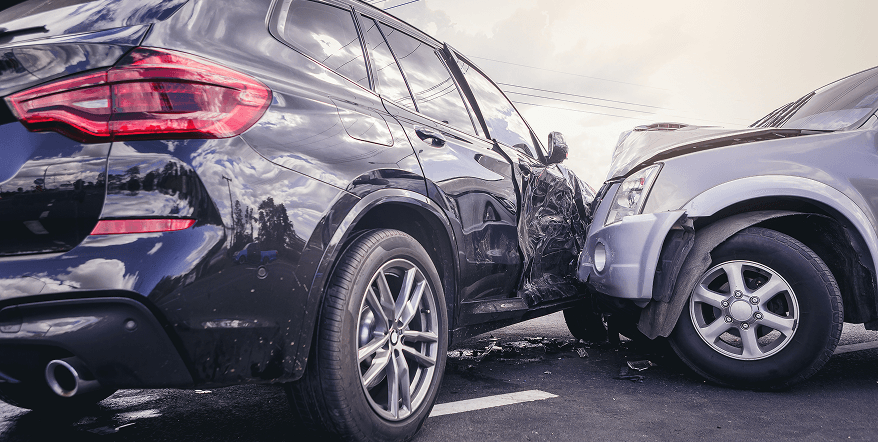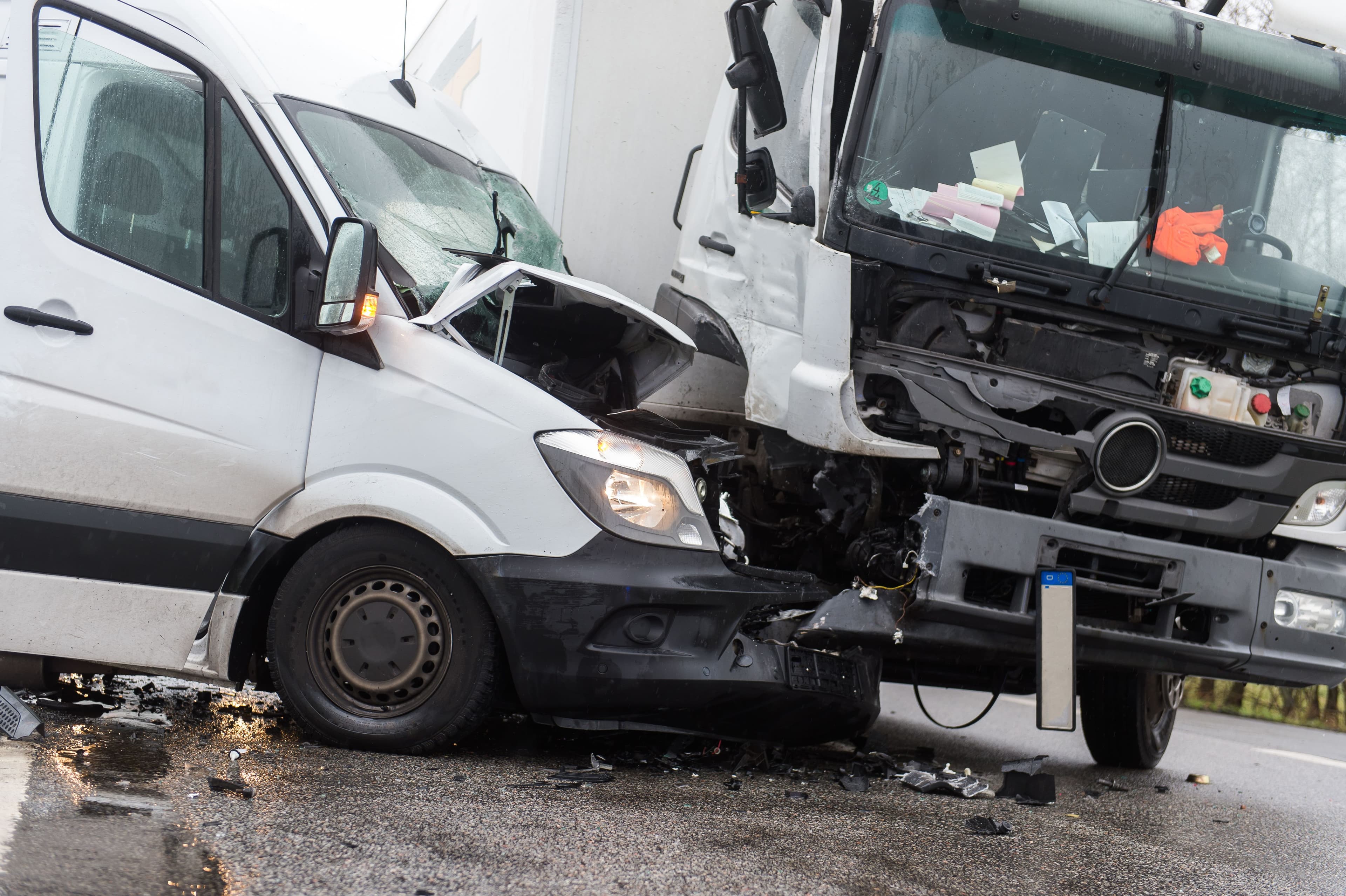After a serious car accident, first responders typically contact a victim’s closest family members. If your loved one was taken to the hospital, law enforcement or medical staff should reach out once they identify the person. But sometimes, that call never comes—or you’re unsure who to call yourself.
In Pennsylvania, to find out if someone has been in a car crash, call the local police department non-emergency line, check with nearby hospitals, check Pennsylvania crash reports, and then check local news reports.
Where To Find Out if Someone Has Been in a Crash
If you believe a loved one was recently in an accident and haven’t been contacted, start by calling:
Local Police Non-Emergency Line:
If you think a crash happened in a particular part of town, you can call the police department that covers that area. Stick to the non-emergency number so you don’t congest emergency lines. The person at the desk may be able to help based on what’s been entered into the system.
Provide:
- The full name of the person you’re looking for
- Any known information about where or when the crash may have happened
- A vehicle description if possible (make, model, plate number)
They may not be able to share full details due to privacy laws, especially if the case is still under investigation. However, they might be able to confirm whether a crash was reported in that area, or direct you to the officer handling the case.
If you’re a spouse, parent, or listed emergency contact, let them know. In many cases, investigators will try to get in touch—but it doesn’t hurt to call first.
Check With Local Hospitals
Ask if someone by that name was admitted. Hospitals won’t always disclose full details, but they may confirm if the person is a patient. Hospitals usually won’t give out much over the phone, but if you’re family or legally authorized, they can sometimes confirm whether someone has been admitted.
Call nearby hospitals and be ready to share:
- The person’s name and your relationship to them
- The time and location of the suspected crash
- Your name and contact information
Try contacting:
- Trauma centers
- Smaller ER facilities
- Regional or county hospitals
If the hospital does confirm the person has been admitted, ask what’s allowed in terms of visiting or speaking to medical staff. Sometimes, they’ll ask you to come in to verify your identity, especially if your loved one can’t speak for themselves.
Avoid calling 911 unless there’s an actual emergency unfolding in real time.
Check Crash Reports
If some time has passed, or if you need formal proof of the accident, you can request a crash report. In Pennsylvania, this can be done through the City of Philadelphia’s Department of Records. Here’s how:
- Fill out the application form for a crash report.
- Submit it by mail or in person to the Public Safety Unit at City Hall.
- Pay the $25 processing fee.
- Wait two to three weeks for the report to be mailed to you.
These reports won’t help you immediately, but they are useful for insurance claims or legal matters once the initial emergency has passed.
Use the Pennsylvania Crash Information Tool (PCTI)
If you’re looking for broader information—like statistics, types of accidents, or high-risk areas—you can use the PCTI database. It provides statewide crash data, including:
- Locations of recent accidents
- Number of injuries or deaths
- Types of vehicles involved
It won’t give personal details but can help identify if a crash happened near where your loved one was traveling.
Turn to Local News Sources
In urgent cases, local news websites and TV stations often report major crashes shortly after they occur. Search their latest updates or live traffic sections. Some even post aerial footage or detailed summaries that can help you narrow down your search.
Additional Resources To Check
Even after calling local police departments or nearby hospitals, you might still feel unsure about what happened or where your loved one could be. If no one has reached out to you yet, and you’re still trying to confirm whether a crash took place, these additional resources can help. In situations like this, time matters—but so does knowing where to look next:
Ask Around Within Your Network
Don’t underestimate the power of your own contacts. Friends, roommates, coworkers, or neighbors might already know something you don’t. Try reaching out to:
- The person’s workplace or school to see if they arrived that day
- Close friends or roommates who might’ve spoken with them last
- People they were scheduled to meet or ride with
Use group texts, calls, or even social media. Posting a general message asking if anyone’s heard from them can be helpful, especially if you’re not sure who to reach out to individually.
You can also check the person’s recent social media activity for signs of where they last were. Sometimes, that can give you a starting point—like the last place they posted from or who they were with.
While no one wants to imagine the worst, taking these steps can bring clarity during an uncertain time. Keep notes, stay calm, and follow each lead as it comes.
Steps You Can Take To Stay In Touch With Your Loved Ones Prior To An Incident
When it comes to staying in touch with loved ones, especially in the event of an emergency, there are steps you can take ahead of time to ensure that crucial information is shared if the unexpected happens.
While no one plans for accidents, being prepared can make a difference during chaotic times. Here are a few strategies that can help ensure your family is contacted if something were to happen:
1. The Traditional Method: Emergency Contact Card
The simplest, most traditional approach is to carry an emergency contact card. Keeping this card in your wallet or purse—where emergency responders are likely to find it—can help quickly identify who should be contacted in the event of an accident. The card should include the following details:
- Your name and contact information
- Your emergency contact’s name and phone number(s)
- Any important medical information (like allergies or pre-existing conditions)
It’s important to ensure that the contact information is up-to-date and that the person listed is readily available and willing to be contacted during an emergency. By attaching it to something essential, like your driver’s license, it’s more likely to be found by first responders quickly.
2. A Tech-Savvy Approach: Smartphone Apps
In today’s digital age, there are many tech tools available to ensure you stay connected in case of an emergency. Several smartphone apps are designed to alert emergency contacts automatically in the event of an accident, and some even notify local authorities if necessary.
These apps can send real-time alerts that include your GPS location, medical details, and emergency contact information. Some popular options include:
SOSmart: This app detects a crash and sends an automatic alert to emergency contacts and authorities. It works on both iOS and Android.
iWrecked: Similar to SOSmart, iWrecked helps in notifying your designated contacts if an accident occurs. It can send crash notifications and allow users to quickly communicate with emergency services.
Medical ID: This app provides first responders with your medical information and emergency contact numbers, ensuring they know how to treat you immediately.
While apps like these can be incredibly helpful, it’s important to review their features beforehand to make sure they’re properly set up and that your contacts are updated.
3. Share Your Travel Plans
A less tech-heavy option that can also be useful is simply sharing your travel plans. Whether you’re on a long road trip or just driving to the store, letting someone know your whereabouts can provide peace of mind. Share details such as:
- The route you plan to take
- Your estimated arrival time
- Any potential stops you may make
Consider sending this information to a close friend, spouse, or family member. With apps like Google Maps or Apple’s Find My feature, you can also share your real-time location in case something unexpected happens during your drive.
4. Use Location Sharing
Using your smartphone’s location-sharing feature can add an extra layer of security. Most smartphones now have built-in location-sharing capabilities, which allow you to share your real-time location with trusted contacts. This is especially useful when traveling long distances or during late-night drives.
While it’s important to balance privacy and security, knowing your loved ones can track your location can offer reassurance.
By taking these proactive steps, you ensure that if something does happen, emergency responders and your loved ones will know where you are and how to reach you quickly. In today’s world, being prepared doesn’t just mean having a plan—it means using the tools available to you, from traditional contact cards to advanced apps, to stay in touch and make sure your information is accessible when it matters most.
What To Do If a Family Member or Loved One Was In a Car Accident
When someone close to you is hurt in a crash, the situation can feel overwhelming. These steps can help you focus on what matters most while making sure their health and legal interests are protected.
- Make Sure They Get Medical Attention: If your loved one hasn’t already been taken to the hospital, call 911 or drive them there as soon as possible. For serious injuries, don’t hesitate to ask if they need to be moved to a trauma center.
- Stay With Them During Treatment: If you’re allowed, stay at the hospital to help with intake, answer medical questions, and provide support as they begin recovery.
- Inform Key People: Let their employer, immediate family, and any dependents know what happened so they’re not left in the dark.
- Gather All the Facts: Ask for a copy of the police report, get names and numbers of witnesses if available, and make sure to collect the other driver’s insurance and contact details.
- Document Everything: Write down what you know about the crash, and take photos of vehicle damage, injuries, and the accident scene if possible. Keep copies of hospital bills and other paperwork.
- Secure Legal Help: Once they’re stable, it may be time to speak with our experienced West Chester car accident lawyers. Our legal team can guide your family through what comes next and help preserve your loved one’s rights moving forward.
Skilled Pennsylvania Car Accident Law Firm
At Wilk Law Personal Injury & Car Accident Lawyers, we know how overwhelming life can feel after a crash. From medical bills to unanswered questions, the pressure adds up quickly. That’s why we’re here to help—so you don’t have to figure it out alone.
We take the time to look at the details, deal with the insurance company, and help you understand your options from the start.
You deserve a legal team that’s responsive, honest, and ready to take your case seriously. Whether we’re negotiating a settlement or preparing for court, we’re focused on getting results that actually matter.
If you’ve been in a serious car accident in Pennsylvania, contact Wilk Law Personal Injury & Car Accident Lawyers to schedule a free consultation today.
Related Articles
Do I need a lawyer for a minor car accident in Pennsylvania?
I’m being blamed for a car accident that wasn’t my fault in Pennsylvania
How long will my Pennsylvania car accident claim take to settle?




